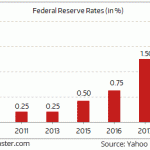The beginning of the month warrants a review of the seasonal patterns that have influenced forex markets over the past several years. For November, as we have done for all months in 2016, we have expanded our focus on the period of 1996 to 2015 in recognition of the evolving relationship between economic data, central banks, and financial markets.
The longer observation period captures several crisis events/periods that traders may find analogous to events unfolding today, even as the ramifications from Brexit are unclear: the Asian crisis; the US tech bubble; the US housing bubble; the global commodity bubble; and previous rate hiking and rate cutting cycles, from the major central banks,during times normal (pre-2008) or extraordinary (post-2008). By increasing the sample size to 20 years, we believe the statistical stability of the estimates will have increased relative to utilizing a shorter time-frame/smaller sample size.
Now that the Italian referendum is in the rearview mirror, markets will be quick to focus in on the European Central Bank and Federal Reserve rate decisions on December 8 and December 14, respectively. Given how quickly markets have priced in policy actions by both the ECB and the Fed, there is exceptional potential for EUR-crosses to reverse recent losses and USD-pairs to reverse recent gains.

Forex Seasonality in Euro (via EURUSD)

December is a bullish month for EUR/USD, from a seasonality perspective, due to its recently consistent performance metrics. The pair has rallied 55% of the time in December over the past 20-years, and its average performance during this time frame was +138-pips per month. EUR/USD has gained in three of the past four years five of the last eight overall.
Forex Seasonality in British Pound (via GBPUSD)

December is a neutral month for GBP/USD, from a seasonality perspective, due to its recently poor performance metrics. The pair has rallied 55% of the time in December over the past 20-years, but its average performance during this time frame was a mere +23-pips per month. GBP/USD has lost ground in each of the past two years, and has only seen gains in three December since 2005.


















Leave A Comment